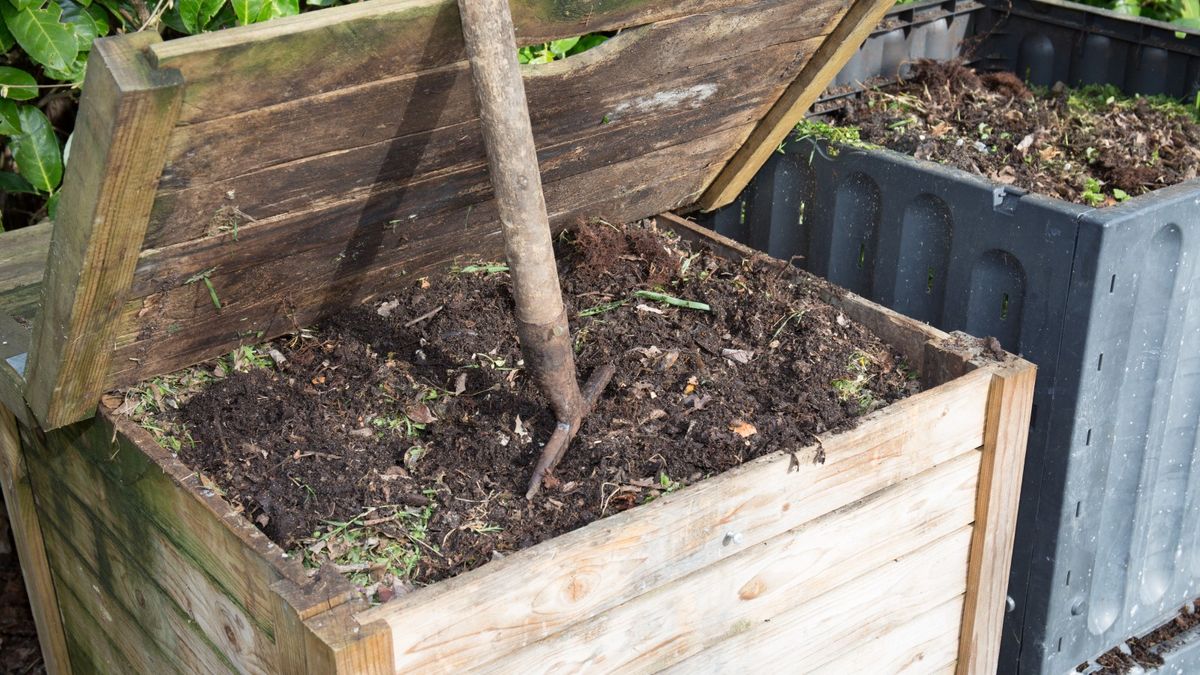Is Female Urine Good for Compost? Discover Its Benefits and How to Use It Effectively

Composting is an essential practice for sustainable gardening, and finding natural fertilizers can enhance its effectiveness. One often overlooked resource is female urine, a liquid rich in nitrogen, phosphorus, and potassium—key nutrients for plant growth. This article explores the benefits of incorporating female urine into compost, discussing its role in enhancing soil health and fertility. We will delve into proper usage techniques, safety considerations, and how to balance it with other compost materials to create an optimal environment for decomposition. Discover how this unconventional compost ingredient can transform your gardening experience sustainably and efficiently.
Is Female Urine Beneficial for Composting?
Female urine can indeed be a valuable addition to compost, primarily due to its high nitrogen content, which is crucial for the decomposition process. Urine is roughly 95% water and contains a wealth of nutrients, including nitrogen, phosphorus, and potassium. These nutrients help create a balanced compost that promotes healthy soil and fosters plant growth. When added in moderation, female urine can effectively speed up microbial activity in the compost pile, breaking down organic matter more efficiently. However, it’s essential to dilute the urine with water before adding it to compost to prevent any potential odor issues and ensure that the nutrient levels remain balanced.
Nutritional Components of Female Urine
Female urine is rich in essential nutrients such as nitrogen, phosphorus, and potassium, which are key components of any successful compost. Nitrogen helps decompose carbon-rich materials, while phosphorus contributes to root and flower development in plants. Potassium supports overall plant health, aiding in disease resistance and water retention. This unique combination makes female urine an excellent organic fertilizer when used correctly in compost.
How to Properly Use Female Urine in Compost
To effectively incorporate female urine into compost, it should be diluted with water in a ratio of approximately 1:5 to prevent overwhelming the compost with excess nitrogen. This dilution helps avoid any potential ammonia buildup, which can lead to unpleasant odors. Once diluted, the urine can be mixed into the compost pile or applied directly to the compost layer, ensuring even distribution and encouraging microbial activity.
Potential Risks Associated with Using Urine
While using female urine can be beneficial for compost, there are potential risks to consider. If urine is not adequately diluted, it may lead to an imbalance in your compost's nutrient levels, creating an overly acidic environment that can hinder microbial activity. Additionally, if the urine comes from individuals with certain medications or health issues, there is a risk of introducing unwanted substances into the compost. Therefore, it's crucial to consider the source and health of the individual contributing to the compost.
The Environmental Impact of Using Urine
Utilizing female urine in composting can have a positive environmental impact by reducing waste and promoting sustainable gardening practices. By recycling nutrients found in urine, gardeners decrease their reliance on chemical fertilizers, which can harm the environment and water supplies. Furthermore, using urine as a compost additive can contribute to a circular economy, where waste is transformed into valuable resources for soil health and plant growth.
Comparing Male and Female Urine in Composting
Both male and female urine can be beneficial for composting, but there are slight differences in their compositions. Female urine typically has a lower concentration of creatinine and other waste products compared to male urine, making it potentially less harmful when integrated into compost. Additionally, female urine might have a more balanced nutrient profile, which can be advantageous when creating compost. Ultimately, both types are effective, but the context and method of use are critical for successful composting.
| Component | Female Urine | Male Urine |
|---|---|---|
| Nitrogen | High | High |
| Phosphorus | Moderate | Moderate |
| Potassium | Moderate | Moderate |
| Creatinine | Lower | Higher |
| pH Level | Acidic | Acidic |
Is male or female urine better for compost?

Is Male or Female Urine Better for Compost?
When it comes to using urine in compost, the gender of the contributor, whether male or female, does play a role in the composition of the urine and its impact on composting. However, the differences between male and female urine are relatively minor compared to the broader benefits of using urine as a nitrogen-rich resource in composting.
The primary considerations for composting with urine include the nitrogen content, potential pathogens, and the dilution method. Male urine tends to have higher amounts of certain nutrients, but both male and female urine can be effective when used appropriately. The most critical factor is how the urine is processed and added to the compost rather than the gender of the donor.
Differences in Nutrient Composition
The nutrient composition of urine is essential for understanding its effectiveness in composting. Both male and female urine contain high levels of nitrogen, phosphorus, and potassium, but there may be slight differences:
- Male urine usually has higher levels of urea, which can enhance the nitrogen content.
- Female urine might include trace amounts of hormones that may affect microbial activity.
- Overall, both types are beneficial, but the ratio of nutrients can vary slightly based on diet.
Pathogen Concerns and Safety
When considering urine for composting, safety is a significant concern that varies between males and females.
- Male urine can pose a higher risk of carrying pathogens associated with urine-infection-related diseases.
- Female urine, while still a potential carrier of bacteria, might have lower instances of high-pathogen loads if the individual is healthy.
- Proper composting techniques, such as maintaining high temperatures, can neutralize potential pathogens from both types of urine.
Impact on Soil Microbiome
The impact of urine on the soil's microbiome is vital for healthy composting and plant growth.
See also:
- Male urine may increase microbial diversity due to its higher nutrient load.
- Female urine's trace elements may encourage specific beneficial microorganisms.
- Both types, when composted correctly, contribute positively to soil health and fertility.
Best Practices for Using Urine in Compost
To maximize the benefits of urine in composting, it's essential to follow best practices:
- Dilution is key; urine should be diluted with water (typically 1 part urine to 10 parts water) to prevent nutrient burn.
- Mixing urine with other compost materials can enhance microbial activity and compost quality.
- Monitor the compost's temperature to ensure effective breakdown of nutrients and pathogens.
Contributions from Diet and Hydration
The dietary and hydration habits of the individual contributing urine can affect compost quality.
- Diet plays a critical role, as those who consume high-fiber diets or diverse foods will produce urine with varying nutrient profiles.
- Hydration levels also influence nutrient concentration; well-hydrated individuals will produce more dilute urine.
- Encouraging a healthy diet can optimize the nutrient content of urine, regardless of gender.
What are the best activators for composting?

The best activators for composting are materials or substances that can accelerate the decomposition process of organic matter. These activators provide essential nutrients, especially nitrogen, which encourage the growth of microorganisms that break down the organic material, facilitating the composting process. Here are some commonly used activators:
1. Green Materials
Green materials are rich in nitrogen and play a critical role in speeding up the composting process. These include:
- Fresh grass clippings - These provide high nitrogen content and moisture.
- Vegetable scraps - Leftover produce contributes both nitrogen and moisture.
- Green leaves - They break down quickly and add nitrogen to the compost.
2. Manure
Animal manure is an excellent compost activator due to its high nitrogen content and beneficial microorganisms. Types of manure include:
- Cow manure - It is mild and contains a good balance of nutrients.
- Chicken manure - Very high in nitrogen, but must be used cautiously to avoid burning plants.
- Horse manure - Rich in nitrogen and improves soil structure.
3. Compost Starters
Commercial compost starters are specially formulated blends designed to hasten the composting process. They typically contain:
- Micronutrients - Essential elements that support microbial activity.
- Beneficial bacteria - Helps colonize the compost pile and promotes faster breakdown.
- Enzymes - Aids in breaking down complex organic materials.
4. Coffee Grounds
Used coffee grounds are not only a great activator due to their nitrogen content, but they also add beneficial microbial diversity. Their advantages include:
- High nitrogen content - A great addition to green materials.
- Improved aeration - They help create space in the compost for better airflow.
- Acidity adjustment - They help moderate compost pH levels.
5. Molasses
Molasses is a carbohydrate-rich substance that feeds bacteria and helps boost microbial activity. Its benefits include:
- Boosting microbial growth - Bacteria thrive on the sugars found in molasses.
- Enhancing compost quality - Contributes to a rich, balanced compost environment.
- Improves moisture retention - Helps maintain adequate moisture levels in the compost pile.
Why isn't urine used as fertilizer?

Urine has been recognized for its potential as a fertilizer due to its high nitrogen content and presence of other essential nutrients. However, several reasons limit its commercial use as fertilizer.
Health Concerns
The primary reason urine is not widely used as fertilizer relates to potential health risks. Human urine can harbor pathogens, especially if the individual has health issues or infections. This contamination poses a risk of disease transmission when used improperly in agricultural systems. Additionally, concerns regarding the presence of pharmaceutical residues can lead to complications in crops and the ecosystem.
- Pathogen transmission
- Pharmaceutical contamination
- Water quality concerns
Cultural Stigma
There is often a cultural stigma associated with using human waste, including urine, as a fertilizer. Societal norms dictate a significant aversion to the idea of using bodily fluids, leading to resistance in adopting urine as a viable fertilizer option. This stigma can hinder agricultural practices that might otherwise consider urine reuse.
- Negative perceptions of waste products
- Lack of public education on benefits
- Influence of agricultural traditions
Logistical Challenges
Utilizing urine as fertilizer poses logistical challenges that could complicate its application. Transporting and storing urine safely requires specific measures to prevent contamination and odor issues. This necessity can lead to increased costs and resource allocation that some farmers may not find justifiable.
See also:
- Storage difficulties and odor management
- Transportation logistics
- Need for treatment or processing
Regulatory Issues
In many countries, there are regulatory issues surrounding the use of human waste as fertilizer. Laws and policies often dictate what substances can be applied to crops, and urine often falls under strict guidelines about biosolids and other waste products. These regulatory frameworks can limit the ability to introduce urine as a mainstream agricultural practice.
- Strict agricultural regulations
- Health and safety compliance requirements
- Permitting and control difficulties
Effectiveness Compared to Other Fertilizers
While urine contains valuable nutrients, its effectiveness compared to traditional fertilizers can be questioned. Some farmers may prefer well-established fertilizers that provide predictable results and convenient methods of application over experimenting with urine. The uncertainty of nutrient release and availability can deter its usage.
- Comparative nutrient analysis
- Application methods
- Response variability in plants
Is urine a good compost accelerator?

Urine can be an excellent compost accelerator due to its high nitrogen content. It contains essential nutrients, particularly nitrogen, potassium, and phosphorus, which are crucial for plant growth. When added to compost, urine helps speed up the decomposition process by providing the necessary elements that promote microbial activity. Microbes are essential for breaking down organic matter, and the nitrogen in urine acts as a food source for them. It helps balance the carbon-to-nitrogen ratio in compost, an important factor in effective composting.
Using urine in composting should be done in moderation, as too much can lead to overly wet conditions or an imbalance in nutrient levels. It's advisable to dilute urine with water before adding it to compost to prevent any potential odors and to ensure that it mixes well with the existing materials.
Benefits of Using Urine in Composting
Adding urine to compost provides several benefits, including enhancing nutrient levels and speeding up decomposition. Key benefits include:
- Nitrogen Boost: Urine is rich in nitrogen, which is vital for microbial growth.
- Cost-effective: Using urine is a free resource that reduces the need for commercial fertilizers.
- Improved Compost Quality: Enhances the nutrient profile of the final compost product.
How to Collect and Use Urine for Composting
Collecting urine for composting can be done easily, and proper use is essential for effectiveness. Consider the following steps:
- Collection Containers: Use a clean, dedicated container for collecting urine.
- Dilution: Dilute urine with water, typically in a ratio of 1:10, to prevent odor and potential nutrient overload.
- Mixing: Incorporate diluted urine evenly into compost materials to ensure even distribution.
Precautions When Using Urine in Composting
While urine has numerous benefits, it's crucial to take certain precautions to avoid problems in your compost pile. Some precautions to consider are:
- Dilution is Key: Always dilute urine to avoid excess nitrogen concentration in compost.
- Monitor Odors: If unmanaged, urine can produce unpleasant odors, so proper mixing is crucial.
- Health Considerations: Ensure that urine is from healthy individuals to avoid any risk of pathogens.
Urine vs. Other Compost Accelerators
Comparatively, urine has unique advantages and disadvantages versus other compost accelerators. Here's how it stacks up:
- Cost Comparison: Urine is free, while many commercial accelerators can be expensive.
- Nutrient Content: Urine provides a specific mix of nutrients, unlike some general-purpose accelerators.
- Availability: Urine is readily available, while other materials may require sourcing.
Environmental Impact of Using Urine in Composting
Utilizing urine for composting can have positive environmental effects. Consider these impacts:
- Resource Recycling: Recycling human waste can reduce the need for synthetic fertilizers.
- Reduction in Water Pollution: Properly composted urine can lessen nutrient runoff into water systems.
- Sustainable Practices: Encourages sustainable gardening and reduces waste in landfills.
Questions from Our Readers
Is female urine safe to use in compost?
Using female urine in compost is generally considered safe as it is a natural fertilizer. However, it is important to dilute it with water to avoid overwhelming the compost pile with too much nitrogen, which can lead to odor issues and imbalance in the composting process. Proper management ensures that it contributes positively to the nutrient content of the compost.
What nutrients does female urine provide to compost?
Female urine is rich in nitrogen, phosphorus, and potassium, which are essential nutrients for plant growth. These elements not only help in breaking down organic matter in the compost but also make the resulting compost highly beneficial for enriching garden soil and promoting healthy plant development.
How should female urine be applied to compost?
To apply female urine to compost, it is advisable to dilute it with water at a ratio of about 1 part urine to 10 parts water. This ensures that the nitrogen content is balanced and prevents the compost from becoming too acidic. Spraying this mixture evenly across the compost helps in maintaining a healthy composting environment.
Can using female urine in compost attract pests?
While using female urine in compost may attract some pests due to its high nutrient content, proper compost management can mitigate this issue. Keeping compost covered, using airtight bins, and ensuring good aeration can deter pests while allowing the beneficial effects of urine to enhance the compost.
See also:

If you want to read more articles like Is Female Urine Good for Compost? Discover Its Benefits and How to Use It Effectively, we recommend you check out our Compost category.
Leave a Reply
Related Articles